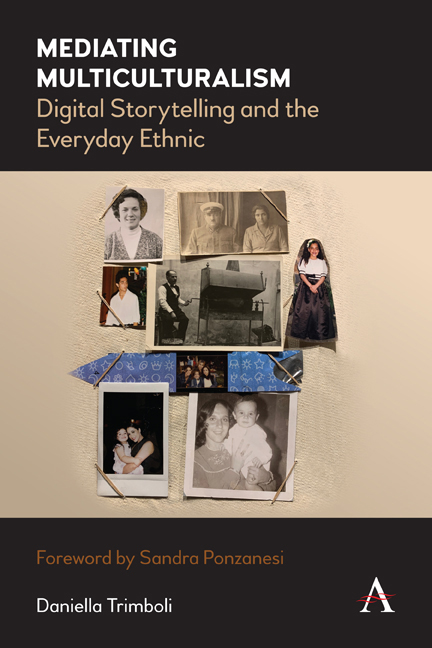Chapter One - Difference Returns to the Everyday: Multiculturalism, the Arts and ‘Race’
Published online by Cambridge University Press: 21 August 2020
Summary
Multiculturalism is both too much and too little. For some it discourages integration, and for the ‘unintegrated’ it precludes it.
– Pardy and Lee (2011, p. 309)The diversity worker has a job precisely because diversity and equality are not already given. When your task is to remove the necessity of your existence, then your existence is necessary for the task.
– Ahmed (2012a, p. 8)Since the 1970s, multiculturalism has been the framework adopted by Western liberal governments to recognise and service the needs of different migrant and cultural groups. Duncan Ivison's (2010) survey of multiculturalism suggests there are three different multicultural logics: protective or communitarian multiculturalism, where recognition of ethnocultural groups is paramount; liberal multiculturalism, the most popular form in which the pursuit of universalism rather than protectionism is the core goal; and, finally, imperial multiculturalism, a critique of the former two, which places power at the centre of its analyses and seeks to unpack the conditions of the other logics. In this book, I am ultimately concerned with all three logics, arguing that they all emerge, in some form, from the second – liberal multiculturalism – and it is this logic that infiltrates the multicultural narratives of former Anglo-settler colonies of Australia, Canada, the United Kingdom and the United States. As Levey (2010, p. 19) describes, liberal multiculturalism emerged not only in liberal democracies but from liberal democracies and is therefore underpinned by the broader goal of enacting Western liberalist principles. How this structure manifests in each place is, of course, highly context specific, so that ‘although we can pick out certain broad elements that most forms of (liberal) multiculturalism share, there will also always be important differences’ (Ivison 2010, p. 2). For this reason, I focus on Australian multiculturalism, but frequently zoom out to broadly contextualise its relationship to multiculturalism in comparable nation-states.
Vertovec and Wessendorf (2010, p. 3) outline that multiculturalism has typically involved policies and practices that affect the domains of public recognition, education, social services, public materials, law, religion, food, and media and broadcasting. Changes to these domains have worked to minimise discrimination, promote equal opportunity, increase participation and representation, deliver better access to services and foster cross-cultural understanding and acceptance (p. 4).
- Type
- Chapter
- Information
- Mediating MulticulturalismDigital Storytelling and the Everyday Ethnic, pp. 13 - 34Publisher: Anthem PressPrint publication year: 2020



